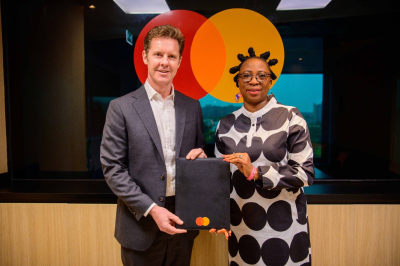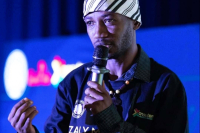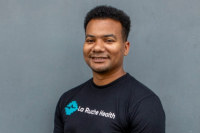Digital transformation is at the heart of Mali's socio-economic development plans. To bring these ambitions to life, the government is focusing on strengthening the security of the national cyberspace.
The Malian government plans to adopt its national cybersecurity strategy this year, according to Government News Bulletin No. 249 published on Friday. The bulletin outlines the Ministry of Communication, Digital Economy, and Administrative Modernization's 2024 performance review and 2025 prospects.
"Cybersecurity is a major global concern as the sophistication of cyberattacks and the financial damage they cause to countries have risen exponentially. Indeed, the rapid pace of innovation in the ICT sector has led to inadequate legislative and regulatory cybersecurity frameworks," states the draft national cybersecurity strategy, which began validation in January 2024.
The adoption of this strategy is deemed essential as the Malian government aims to build a strong and resilient digital Mali, leveraging digital technology as a driver of economic growth, modernization, and prosperity. The strategy seeks to enhance cybersecurity governance, strengthen international cooperation, and foster a culture of cybersecurity through information, training, and research. It also includes measures to protect critical infrastructure, notably through the establishment of security standards and frameworks.
Currently, Mali is ranked in the fourth tier (Tier 4) out of five in cybersecurity by the International Telecommunication Union (ITU) in its Global Cybersecurity Index 2024. This tier comprises countries with an overall score of at least 20/100, demonstrating basic cybersecurity commitment, with government actions aimed at assessing, establishing, or implementing generally accepted cybersecurity measures in at least one domain.
The strategy is still in the development phase. Furthermore, a mere adoption is not enough. It is crucial to implement the actions it outlines. The ITU notes that Mali has a relatively strong performance in legislative measures, scoring 12.36 out of 20 in this pillar. However, significant efforts are required in other areas: technical measures (4.56 out of 20), organizational measures (2.9 out of 20), capacity development (0.79 out of 20), and cooperation (8.87 out of 20).
By Isaac K. Kassouwi
Editing by Sèna D. B. de Sodji
CcHub has partnered with the Mastercard Foundation to support edtech startups focused on improving learning outcomes and expanding access to quality education in Africa.
The program offers $100,000 in equity-free funding, expert mentorship in design, product development, and technology, and connections to investors to help startups scale.
Eligible startups must be Africa-focused, incorporated in Nigeria, and provide solutions addressing challenges in K-12 education, tertiary education, or vocational training. The program encourages inclusive teams and especially welcomes female-led startups.
Applications are open until January 31, 2025.
Interoperability between banks and non-banking financial service providers makes financial services more accessible to unbanked and underbanked populations. As many Africans remain unbanked, integrating digital payment solutions into everyday transactions can help bridge the gap between the banked and unbanked.
The Kingdom of Eswatini has launched the Eswatini Payment Switch (EPS), a platform enabling real-time, interoperable transactions across banks and non-banks. Paylogic, the provider behind its development, announced the rollout on January 7.
Commenting on the development, Mohamed Mekouar, Executive Chairman of PayLogic said, "We are honored to partner with the Central Bank of Eswatini in this transformative project. The Eswatini Payment Switch is a testament to our commitment to advancing digital payments and financial inclusion across Africa."
The EPS marks a significant step toward creating a cash-lite economy by reducing dependency on cash transactions. The system allows payments to be processed within seconds, ensuring seamless, 24/7 service availability, including weekends and holidays.
The EPS enhances interoperability among financial institutions, fostering a more inclusive and interconnected financial ecosystem. This innovation is expected to drive financial inclusion and digital transformation, enabling individuals and businesses to access faster and more secure payment services.
This initiative aligns with Eswatini's broader push to modernize its payment infrastructure, drive economic growth, and expand financial access for its citizens. The country has made notable progress in embracing digital payments, led by the Central Bank of Eswatini (CBE) through its National Payment System (NPS) Vision 2025, which focuses on achieving interoperable, real-time, and 24/7 payment capabilities.
By ensuring interoperability and real-time processing, the platform positions Eswatini as a leader in embracing digital financial solutions in the region.
Hikmatu Bilali
Africa is experiencing a rapid shift toward digital payments, fueled by increased smartphone penetration and internet usage. Mastercard’s expertise in secure and scalable payment systems can complement and enhance these existing platforms.
Mastercard has opened its first office in Accra, Ghana, a key step in its West Africa expansion. This move, announced yesterday January 13, reflects its commitment to supporting Ghana’s digital economy through innovative financial products and services tailored to the local market.
“Opening our office in Ghana marks an important milestone in our commitment to deepening relationships across the region. Our growth strategy for West Africa is ambitious, and establishing a formal presence here allows us to better serve the specific needs of our customers,” said Mark Elliott, Division President for Africa at Mastercard.
The new office underscores Mastercard’s dedication to fostering stakeholder relationships and promoting inclusive growth. By establishing a presence in Ghana, Mastercard aims to enhance collaborations and accelerate the adoption of tailored financial solutions.
Beyond the office, Mastercard has collaborated with companies like Kalabash, KaiOS, Boost, and Smile ID, and partnered with banks such as Access Bank and Fidelity Bank to improve cross-border payment solutions. These efforts have empowered fintechs, expanded digital access for underserved communities, and strengthened Ghana’s position as a tech hub.
Mastercard’s office in Accra is a strategic response to the growing demand for secure, efficient, and inclusive financial solutions in Ghana and West Africa. By leveraging its global expertise and fostering local partnerships, Mastercard is set to play a pivotal role in transforming Ghana’s financial landscape and contributing to the region’s digital future.
The 2021 Financial Services Demand-Side Survey Report by the Ministry of Finance reveals that Ghana has achieved a remarkable 96% financial inclusion, leaving only 4% of the population without access to financial services. This significant progress is primarily driven by the widespread adoption of mobile money nationwide. It underscores the growing digitalization of Ghana's economy, creating opportunities for fintech innovation, e-commerce, and digital payments.
Ghana’s near-universal financial inclusion and thriving digital economy make it an ideal launchpad for Mastercard’s broader West African strategy. This milestone demonstrates the country’s leadership in financial inclusion within the region and its readiness to leverage digital solutions to drive economic development.
With offices across Africa, including in Cairo, Casablanca, Johannesburg, Lagos, and Nairobi, Mastercard’s expansion into Accra reinforces its commitment to building a sustainable digital economy across the continent.
Hikmatu Bilali
The Tunisian government views the digitization of services as a key solution to simplify administrative procedures, reduce processing times, and enhance transparency in its interactions with citizens.
Tunisian Transport Minister Rachid Amri confirmed the upcoming launch of a national ride-hailing application on Monday. The minister, speaking on a private radio station, said the domestically developed app aims to provide a high-quality, accessible, and better-regulated transportation service for citizens.
Amri said the app will ensure the availability of taxis, reasonable prices, and quality service. Unlike existing platforms, fares will be capped at 1.5 times the value of the traditional taxi meter to avoid excessive charges that burden citizens.
This announcement comes amid demands from individual taxi drivers for an increase in the current meter rate, which is set at 900 millimes. Drivers are advocating for it to be raised to two dinars ($0.62 USD) to cover the fixed costs of their operations, which have risen significantly in recent years.
Beyond regulating fares and services, this application is fully aligned with the Tunisian government’s goals for digital transformation and public service modernization. Tunisia already stands out as a leader in North Africa and ranks third on the continent for e-government, according to the United Nations’ 2024 E-Government Survey (UN DESA). With a score of 0.6935 out of 1, Tunisia far exceeds the African average of 0.4247, illustrating its progress in digitizing services.
The new platform, set to be operational by the end of the first half of 2025, also aims to highlight local technological expertise while creating a fair framework for drivers and a more accessible system for users. It is expected to improve citizens’ daily lives while strengthening the national digital economy.
By Samira Njoya,
Editing by Sèna D. B. de Sodji
She aims to help businesses streamline their operations and enhance customer loyalty. Her innovative projects have garnered numerous awards and accolades.
Evelyn Namara (photo) is a Ugandan tech entrepreneur. She is the founder and CEO of Vouch Digital, a startup that helps businesses, corporations, and non-governmental organizations (NGOs) leverage data and digital tools to enhance transparency and efficiency in their programs.
Founded in 2017, Vouch Digital developed a digital supply chain management solution aimed at addressing issues such as unreliable payments, lack of trust among suppliers, distributors, and farmers, and limited access to affordable rural financing.
In 2020, the company introduced an innovative promotion engine that enables the design, management, and distribution of digital coupon campaigns. This platform is designed to drive customer acquisition, activation, and loyalty through targeted incentives.
Beyond her entrepreneurial work, Evelyn Namara serves as a Non-Executive Director at KCB Bank Uganda and as a board member of Village Enterprise, an organization dedicated to combating rural poverty in Africa. She is also the Senior Programs Lead at the Global Digital Inclusion Partnership, a coalition of public, private, and nonprofit actors committed to connecting as many people as possible to the internet worldwide.
Evelyn holds a bachelor’s degree in Computer Science from Makerere University, which she earned in 2010. Her professional journey began in 2008 as a UNIX administrator at Orange Uganda. In 2010, she became the Country Director for Solar Sister, an organization empowering women through economic opportunities. Later, in 2014, she joined Beyonic as East Africa Regional Director for the fintech company. Between 2018 and 2021, she worked as Manager of Global Special Interest Groups (SIGs) and Community Engagement Lead at the Internet Society.
In 2012, she received the Anita Borg ABIE Change Agent Award, recognizing her efforts to empower women and girls in technology. She was also a finalist for the Cartier Women’s Initiative Award for Sub-Saharan Africa in 2018.
By Melchior Koba,
Editing by Sèna D. B. de Sodji
He is a digital transformation consultant and web activist. His career demonstrates a strong commitment to local development and the promotion of Guinean cultural heritage.
Lansana Keita (photo) is a Guinean entrepreneur and heritage management expert. He is the creator of Zaly Merveille, a project that recently won first place in the "Start-up" category at the ANSUTEN (National Universal Telecommunications and Digital Service Agency) Grand Prize for Technology and Innovation.
Zaly Merveille is a digital initiative dedicated to promoting and preserving the cultural heritage of Guinea’s Forest Region. The project aims to encourage sustainable tourism while creating a positive economic impact locally.
Through its communication channels, Zaly Merveille offers virtual museum tours, tourism circuits to explore the wealth of the Forest Region, and detailed access to information on the country’s artworks.
“Our primary motivation was to change the reputation of Guinea’s Forest Region, which is considered a conflict zone. We wanted to show the world that this region is not just a conflict zone but also brimming with enormous tourism potential,” said Lansana Keita in 2024.
The project is spearheaded by Webzaly, a digital communications firm founded in 2021 by Lansana Keita. The firm’s mission is to leverage digital tools to support local development. Specializing in digital and cultural fields, Webzaly is committed to promoting cultural heritage while encouraging citizen participation through information and communication technologies (ICT).
Lansana Keita is also an active member and focal point of the Association of Bloggers of Guinea. He graduated from Mahatma Gandhi University in Guinea with a degree in Political Science and Governance in 2015. In 2022, he expanded his expertise with a certification in Cultural Heritage Management from the School of African Heritage.
His professional career began in 2016 at the National Directorate of Fisheries in Guinea, where he was responsible for monitoring and evaluation. In 2017, he transitioned to the role of Digital Communications Manager at the Federation of Rice-Fish Farmers in the Forest Region. From 2023 to 2024, he served as the coordinator of the House of Democracy and Human Rights in Guinea.
By Melchior Koba,
Editing by Sèna D. B. de Sodji
BNPL (Buy Now, Pay Later) is a financing option that allows consumers to purchase goods or services and pay for them over time, usually with no interest if payments are made on schedule. In Senegal, a startup is offering a similar solution.
Nixacom is an online shopping platform developed by a Senegalese startup. It allows customers to purchase tech gadgets through a BNPL (Buy Now, Pay Later) system. Founded in 2023 by Cheikh Gueye, Elhadji Fall, and Wangel Yohannes, the platform offers a convenient way to access technology products.
Users can browse Nixacom’s web platform to access a wide range of products, including smartphones, tablets, and computers. "A customer logs onto our website and picks which product they are looking for, fill out a KYC, and once we receive all the information we see which of our partner institutions they are eligible with and get them financed directly through us, and get them their product," Cheikh Gueye told Disrupt Africa explaining the application process.
Nixacom works with various financial institutions, offering payment plans of 12 or 24 months based on the user’s income and the selected product. During the process, the startup requires documents such as an ID and proof of income.
However, it does not conduct a credit check when assessing the user’s eligibility. Application processing times range from 5 to 10 business days. "After approval, your product will be prepared for local pickup within 5 to 10 business days, and you will receive a notification when your order is ready for collection," Nixacom explained.
By Adoni Conrad Quenum,
Editing by Feriol Bewa
Egypt has established itself as a regional hub for IT and outsourcing services, with a thriving offshoring industry that contributes significantly to the economy. Its geographic position provides easy access to markets in Europe, the Middle East, and Africa, which Konecta will leverage to serve global clients.
Konecta Egypt, a subsidiary of the Spanish digital and CX AI leader Konecta signed a Memorandum of Understanding (MoU) with the Information Technology Industry Development Agency (ITIDA). The signing, announced on January 9, was attended by Dr. Amr Talaat, Minister of Communications and Information Technology, Nourdine Bihmane, Group CEO of Konecta, and Prime Minister Dr. Mostafa Madbouly who presided over the ceremony.
Nourdine Bihmane expressed optimism about the partnership, stating, “By establishing our regional headquarters in Egypt, we aim to harness the country’s exceptional talent pool to deliver cutting-edge digital solutions and foster a highly skilled workforce that will shape the future of customer experience globally.”
The agreement, signed by ITIDA CEO Eng. Ahmed El-Zaher and Konecta’s regional CEO Mr. Ahmed El-Harany, marks Konecta Group's official launch in Egypt. The company will establish its regional headquarters in New Cairo to serve markets in the Middle East, Africa, Europe, and the Americas. Over the next three years, Konecta plans to invest approximately $100 million and employ nearly 3,000 specialists to provide advanced digital services, including artificial intelligence, digital transformation, cybersecurity, big data, IoT, and multilingual customer support in languages such as English, French, German, Italian, and Spanish.
As part of this initiative, Konecta will establish its first Global Center of Excellence (CoE) for Gen-AI in Egypt, leveraging its expertise to support global operations. The partnership will also include collaborative efforts with ITIDA to enhance the skills of Egyptian talent through specialized training and upskilling programs.
Eng. Ahmed El-Zaher emphasized the importance of the partnership, calling it a milestone for Egypt’s IT sector. He said the collaboration with Konecta “underscores the growing confidence of leading global IT companies in Egyptian talent. It will generate diverse job opportunities across key areas, including business process outsourcing, IT services, and engineering R&D.”
The move highlights the growth of Egypt's offshoring market and the increasing interest from global companies in establishing a presence in the country. It comes on the heels of ITIDA’s recent signing of an MoU in December with Foundever, a provider of customer experience (CX) solutions and contact center services.
The partnership will help address the unemployment rate in Egypt which has been a challenge, particularly for youth. According to the Central Agency for Public Mobilization and Statistics (CAPMAS), Egypt’s Unemployment Rate increased to 6.70% in September 2024, from the previously reported figure of 6.50% in June 2024.
Hikmatu Bilali
An IT specialist by training, he leverages his skills to improve healthcare access for all Ivorians.
Rory Assandey (photo) is an Ivorian computer engineer and tech entrepreneur. He is the co-founder and CEO of La Ruche Health, a startup specializing in health technologies.
Founded in 2022 by Rory Assandey and Benjamin Sasu, La Ruche Health’s mission is to bring quality, affordable, and tailored healthcare closer to Ivorian communities. Among its innovative solutions is Kiko, a generative AI-powered health chatbot accessible via WhatsApp.
By analyzing data from the chatbot, the startup offers personalized healthcare services in collaboration with independent medical practitioners. La Ruche Health has also developed an electronic medical record system for its partner healthcare professionals, allowing them to automate the management of appointments, documentation, billing, and payments.
Through these solutions, the company provides a variety of services, including teleconsultations, home consultations, personalized health advice, and laboratory testing. By October 2024, it had already reached over 160,000 users.
“The main added value we offer is helping the African population (60% of whom are under 25) avoid self-diagnosis and self-medication. We eliminate frustration and provide instant, trustworthy advice, increasing the likelihood of patients seeking professional assistance,” explains the startup’s CEO.
Rory Assandey holds a bachelor’s degree in business computing, earned in 2014 from Dublin City University in Ireland. His professional career began in 2011 at Amazon Ireland, where he worked as a technical support agent for the Kindle app. In 2013, he joined SAP, a U.S.-based tech company, as an intern in Dublin. He became a support engineer in 2014 before being promoted to IT consultant in the United States in 2017, a role he held until 2022, when he dedicated himself fully to La Ruche Health.
In 2022, La Ruche Health was selected alongside 14 other African startups to join the Google for Startups Accelerator program. In 2024, it was also chosen by Ivorian authorities to represent the country at the VivaTech technology fair in Paris.
By Melchior Koba
Editing by Sèna D. B. de Sodji
More...
An expert in education and financial management, she leverages technology to share her expertise, supporting businesses and assisting rural populations.
Mariama Ndiaye (photo) is a Senegalese tech entrepreneur specializing in finance. She is the founder and CEO of The UpTribe, a financial education company.
Founded in 2020, The UpTribe’s mission is to promote financial inclusion for Africans. Its financial automation platform provides young people with access to financial products and services, along with practical advice. The company offers a variety of resources, including courses on personal finance management, individual mentorship sessions, articles, audio content, and an online community.
The UpTribe’s training programs are tailored to the needs of businesses and entrepreneurs, while its coaching sessions aim to help individuals improve the management of their personal finances. The company’s flagship initiatives include Achieve, PEFE and Yokkuté Kom. Achieve is designed to support businesses while PEFE focuses on strengthening financial management skills for entrepreneurs, and Yokkuté Kom provides financial education in local languages for rural populations.
In addition, The UpTribe is developing an innovative platform called FinEducation, with the goal of training 100,000 young people by 2026. This platform is specifically designed for use in schools.
Mariama Ndiaye holds a master’s degree in accounting and financial management, earned in 2018 from CESAG Business School in Senegal. In 2021, she also obtained certifications in financial education and planning, followed by a certificate in finance and financial management services in 2024.
Her professional career began in 2015 with an internship in risk management at Crédit Mutuel du Sénégal. In 2019, she became the head of YUX Design Academy, a Senegalese design training center. The following year, she worked as a financial accountant at the Coordination Unit for Solid Waste Management in Dakar.
By Melchior Koba,
Editing by Sèna D. B. de Sodji
The two kingdoms signed a memorandum of understanding in December, agreeing to collaborate on research, innovation, and the adoption of advanced technologies in e-government. This partnership will involve sharing best practices and enhancing specialized capacities.
Morocco wants to strengthen its cooperation with Saudi Arabia, particularly in the fields of artificial intelligence (AI), digital transformation, and administrative reform. The issue was discussed last week during a working meeting between Amal El Fallah Seghrouchni (photo, left), Morocco’s Minister of Digital Transition and Administrative Reform, and Sami bin Abdullah bin Othman Al-Saleh (photo, right), Saudi Arabia’s Ambassador to Morocco.
The initiative is part of the Moroccan government’s international cooperation efforts to implement its new digital transformation strategy, “Digital Morocco 2030,” officially launched last September. A memorandum of understanding was already signed in December with Saudi Arabia to enhance cooperation in e-government. Morocco has also forged closer ties with Portugal and Estonia, the latter being regarded as one of the world leaders in digital transformation.
Saudi Arabia ranks sixth worldwide on the UN Department of Economic and Social Affairs (DESA) E-Government Development Index, with a score of 0.9602 out of 1. In the sub-indices for online services and telecom infrastructure, the kingdom scores 0.9900 and 0.9841, respectively. Moreover, the International Telecommunication Union (ITU) considers Saudi Arabia a model in cybersecurity, having achieved full compliance with all five pillars of the Cybersecurity Index.
Morocco ranks fourth in Africa and 90th globally in e-government, with a score of 0.6841 out of 1. The kingdom surpasses the averages for North Africa (0.5776), Africa (0.4247), and even the global average (0.6382). However, further efforts are needed, particularly in developing human capital and improving online services. In cybersecurity, Morocco is also seen as a regional model, but it must intensify its efforts to strengthen measures and build capacities.
The Moroccan government’s cooperative efforts could accelerate its ambition to position the kingdom as a digital hub, thereby driving social and economic development by 2030. The government aims for the digital sector to contribute an estimated 100 billion Moroccan dirhams (10 billion USD) by that time. The discussions remain at a preliminary stage. Even for the memorandum of understanding signed in December 2024, no specific timeline has yet been announced for its implementation.
By Isaac K. Kassouwi,
Editing by Sèna D. B. de Sodji
Nairobi will host the AI Kenya Breakfast Summit 2025 on January 29 at Mövenpick Hotel from 7:00 AM to 11:30 AM. The event, themed “Transformative AI From Efficiency Gains to Strategic Advantage,” will explore AI’s potential to enhance efficiency and provide strategic benefits for businesses in East Africa.
Topics will cover AI adoption in East Africa, partnerships to unlock AI’s potential, and using AI for efficiency and strategy. Attendees can network with leaders, explore partnerships, and gain actionable insights to drive AI-led innovation in 2025.
As Africa continues its rapid digital transformation, cybercrime has emerged as one of its most pressing challenges. With increasing internet penetration and the rise of mobile financial services, the digital economy has become a critical growth driver. However, this progress has been accompanied by a surge in cyber threats.
Nigeria's Economic and Financial Crimes Commission (EFCC) has arrested 105 individuals, including four Chinese nationals, for alleged involvement in an internet fraud scheme targeting hotels in Europe and other regions. The anti-corruption agency disclosed this on Friday, January 10.
“We are working with other law enforcement agencies across the world to dig deeper into the global dimensions involved in this crime,” the EFCC said in a tweet.
The suspects were apprehended on Thursday, January 9 during a raid on an apartment in Abuja, Nigeria's capital. According to the EFCC, the group is accused of running a "hotel review job scam" designed to defraud unsuspecting victims.
The operation follows a string of high-profile crackdowns on cybercrime in Nigeria. Just last month, nearly 800 people, including 148 Chinese and 40 Filipino nationals, were arrested during a raid on a suspected fraud hub. The scheme involved luring victims with fake romance offers before coercing them into fraudulent cryptocurrency investments.
This development aligns with the recent recognition of the Nigeria Police Force National Cybercrime Centre as Africa's Best Cybercrime Unit for 2024 by Interpol’s Cybercrime Directorate, highlighting Nigeria’s outstanding achievements in combating cybercrime.
Hikmatu Bilali















